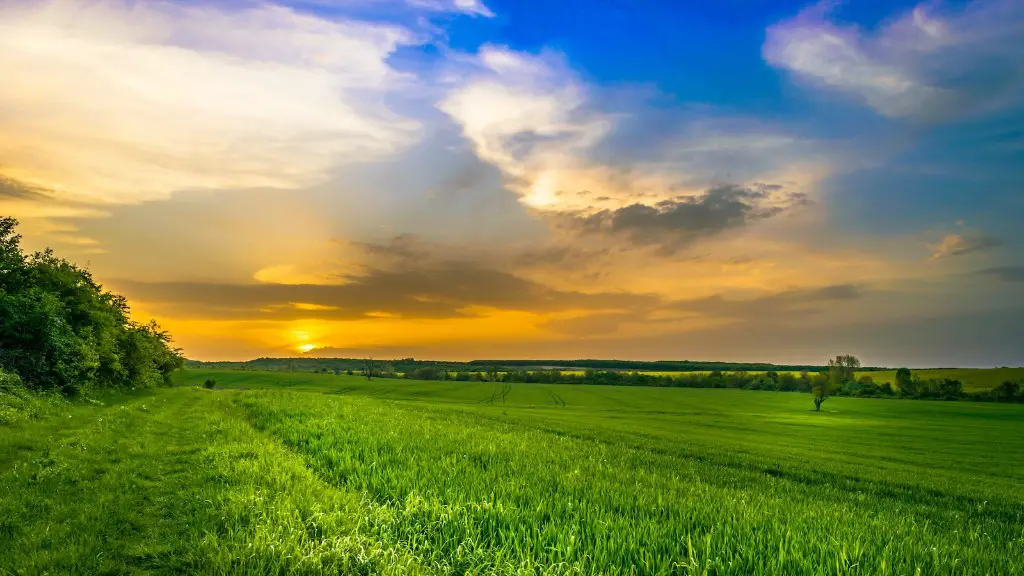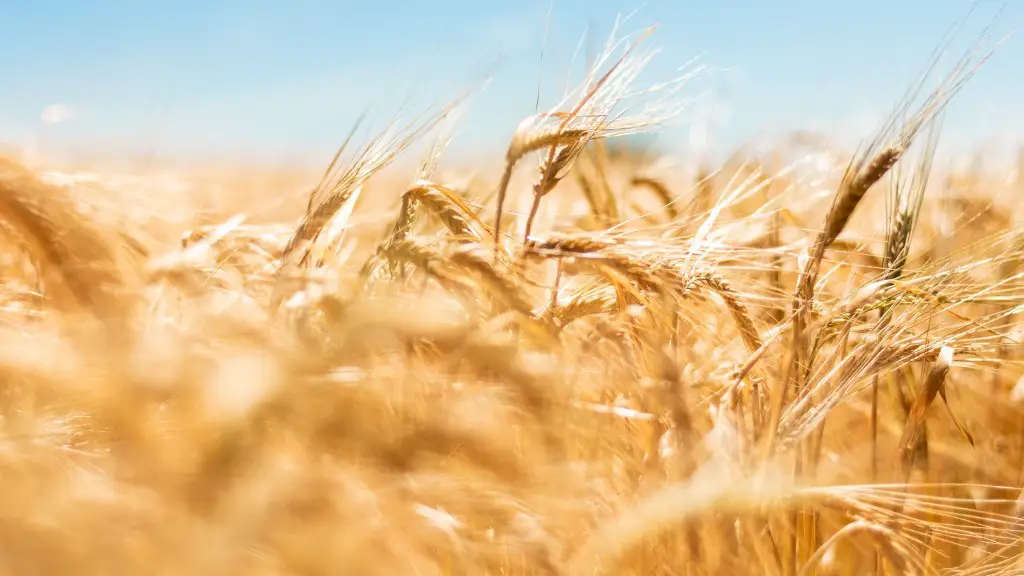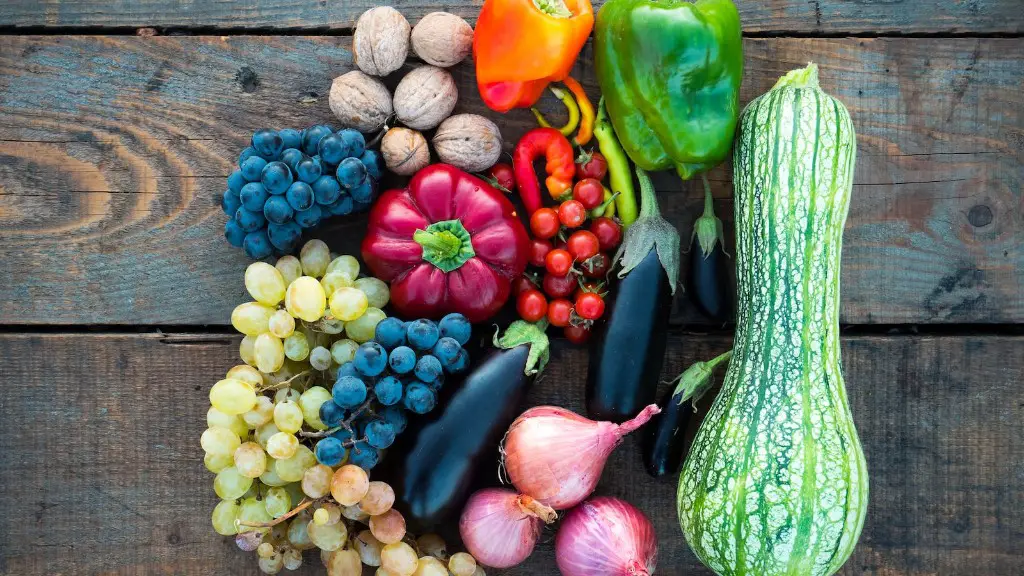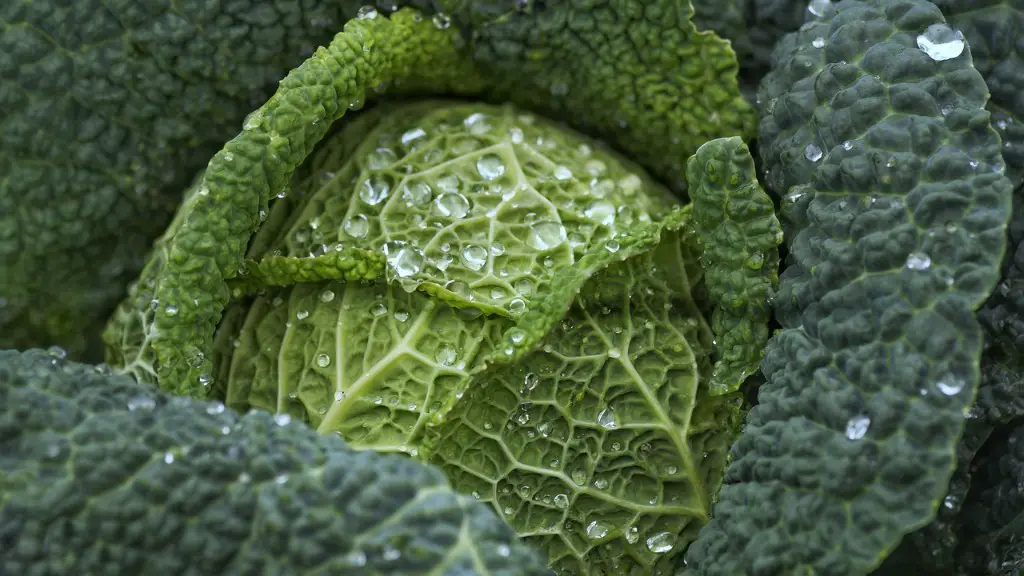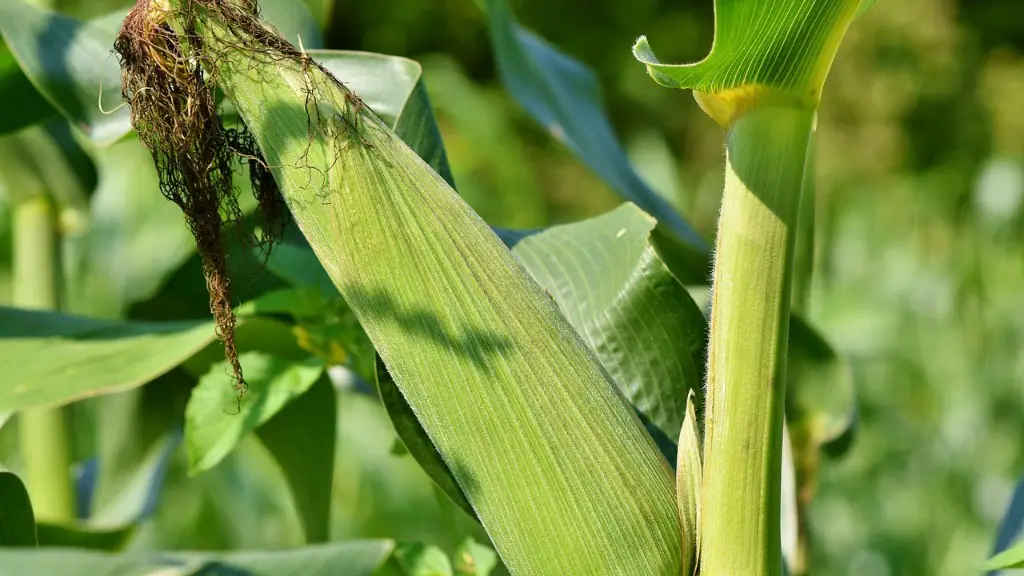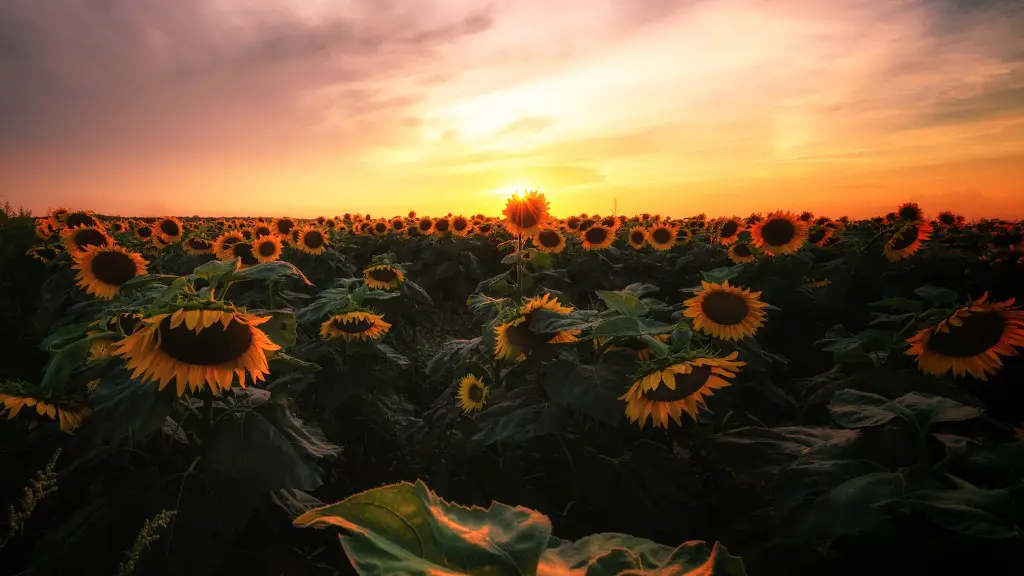There are many reasons why conventional agriculture is not sustainable. The main reason is that it is extremely resource intensive and therefore dependent on fossil fuels, which are a finite resource. It also results in soil depletion and water pollution.
There are many reasons why conventional agriculture is not sustainable. One reason is that it is highly dependent on synthetic inputs, such as chemical fertilizers and pesticides, which can pollute the environment. Another reason is that it often uses heavy machinery, which can compact the soil and lead to soil erosion. Additionally, conventional agriculture typically relies on monoculture cropping, which can lead to a loss of biodiversity. Finally, many of the methods used in conventional agriculture are not sustainable in the long-term, such asclear-cutting and irrigation.
What is the problem with conventional agriculture?
Organic farming is a more sustainable and environmentally friendly option than conventional agriculture. It causes less greenhouse gas emissions, soil erosion, and water pollution, and does not threaten human health with toxic pesticide residues.
Soil erosion is a major problem for farmers and can lead to a decrease in agricultural productivity. However, there are other problems that can also reduce soil health and fertility, such as soil compaction, reduction in water holding capacity, and salinization. These problems can all have a negative impact on crop yields in the long run. Therefore, it is important for farmers to be aware of these problems and take steps to mitigate them.
How does conventional agriculture differ from sustainable agriculture
If conventional agriculture was characterized by efficiency, uniformity, and maximization, sustainable agriculture could be described by diversity, interconnectedness, and preservation. Sustainable farming is based on the diversity of plants and animals kept on the farm. This diversity helps to create a natural balance that can resist pests and diseases. The interconnectedness of the different species on the farm helps to create a balanced ecosystem. And finally, the preservation of the land and water resources is essential to sustainable agriculture.
Pesticides, fertilizers and other toxic farm chemicals can poison fresh water, marine ecosystems, air and soil. They also can remain in the environment for generations. Many pesticides are suspected of disrupting the hormonal systems of people and wildlife. Fertilizer run-off impacts waterways and coral reefs.
What are 4 disadvantages of traditional farming?
The problem with traditional farming methods is that they are becoming increasingly inaccessible to the greater public. This is due to urbanization, deforestation, lack of space, and water shortages around the world. Traditional farming methods are also posing a risk to the environment.
Modern conventional farming methods often lead to a decline in soil fertility over time, as well as an increase in salinity and blue-green algae in waterways. These issues can be addressed by using more sustainable methods of farming, such as diversifying crops and using less chemicals.
What type of agriculture is not sustainable?
Monoculture farming is a huge threat to our land. It reduces the amount of water and nutrients that the soil can hold, and it puts us at risk of another Dust Bowl. We need to diversify our crops and rotate our fields to keep our land healthy and productive.
Biodiversity loss, poor irrigation management, depletion of nutrients, land degradation, and resistance of pests to pesticides are all major problems that need to be addressed. These issues are all interconnected, and resolving one will likely have positive impacts on the others. For example, improving irrigation management could help reduce biodiversity loss by preventing the need to clear land for agriculture. Addressing any of these issues will require a multi-pronged approach that takes into account the interconnectedness of all these problems.
How modern farming is not sustainable
Most agricultural chemicals are toxic to human health, and they are also poisoning wildlife and pollinators. They can run off into water bodies, polluting land, rivers, and wetlands, and destroying important soil microbes that are critical for healthy soils.
Organic farms are much better for the environment than conventional farms. They use less energy, release less carbon emissions, and help to preserve biodiversity.
Is organic farming more sustainable than conventional farming?
Organic farming is definitely more sustainable than conventional farming methods! There are several reasons for this: first, organic farms produce less pollution. Synthetic fertilizers, pesticides, and other chemicals used in conventional farming can be harmful to the soil and can run off into the water supply. Second, organic farms often use crop rotations to help keep the soil healthy – something that is not always done on conventional farms. Lastly, organic farms tend to be better for the environment overall because they use fewer resources and have less of an impact on the land.
Organic farming is significantly less efficient than standard farming, requiring more land to produce the same amount of food. A recent study in Europe found that organic farmers need 59% more land to produce the same gallon of milk as a standard farmer. While organic farming has many benefits, this inefficiency is a major drawback.
What are the biggest challenges to sustainability in agriculture
Sustainable farming is an approach to agriculture that aims to create a sustainable system that is environmentally friendly, economically viable, and socially just. There are many challenges that sustainable farmers face, but some of the most significant challenges include:
1. Growing enough food: One of the biggest challenges facing sustainable farmers is creating a system that can produce enough food to meet the needs of the world’s growing population. This is a daunting task, but it is possible with the use of sustainable practices such as crop rotation, intercropping, and using organic fertilizer.
2. Water scarcity: Another significant challenge farmers face is the scarcity of water. This is especially true in areas where there is little rainfall or where water is being diverted to other uses. To address this challenge, farmers need to use water-efficient irrigation systems and grow drought-resistant crops.
3. Loss of usable land: Another challenge facing sustainable farmers is the loss of usable land. This can happen due to urbanization, deforestation, or other environmental changes. To combat this, farmers need to use land management practices that protect and restore the land.
4. High energy use: Another challenge of sustainable farming is the high energy use. This is due to the use of machinery and other
The industrial agriculture system is not sustainable and is causing serious environmental problems. It needs to be reformed in order to protect our planet.
What are 3 disadvantages of a traditional economy?
The disadvantages of socialism include the loss of individual freedom to choose, the production of low-quality goods, a large decision-making bureaucracy, and lack of individual initiative.
Agricultural productivity is the yield of agricultural products per unit area of land under cultivation. The main factors affecting agricultural productivity are climate, soil type and quality, drought, pests, and farming practices.
Climate change is affecting agricultural productivity in a number of ways, including altering the timing and amount of precipitation, increasing temperatures, and changing the distribution and abundance of pests and diseases. The impact of climate change on agriculture will vary depending on the crop, the location, and the farmer’s ability to adapt.
Soil quality and fertility are important for agricultural productivity. Soil quality can be degraded by soil erosion, compaction, salinization, and pollution. Soil fertility can be reduced by the depletion of essential nutrients, the loss of organic matter, and the release of toxins.
Drought is a major factor affecting agricultural productivity, as it can lead to crop failure and livestock death. Drought can also cause soil erosion and dust storms.
Pests and diseases can have a significant impact on agricultural productivity. Pests can damage crops and spread diseases, while diseases can reduce crop yields and livestock productivity.
Farming practices can also affect agricultural productivity. The use of pesticides and fertilizers can improve crop yields, but
What are the three disadvantages of modern farming methods
There are a number of disadvantages to using modern farming methods. These include the overuse of natural resources, the loss of soil fertility due to the increased use of fertilizers, the depletion of water resources due to the use of tube wells for irrigation, and the high level of capital investment required.
The ways that we currently farm are not sustainable in the long term. They degrade the land, which makes it less productive over time. This can prompt smallholder farmers to cut down nearby forests in search of new land. We need to find ways to farm that are more sustainable and will not damage the land.
Conclusion
There are many reasons why conventional agriculture is not sustainable. One reason is that conventional agriculture often relies heavily on chemical inputs, such as fertilizers and pesticides, which can pollute the environment and degrade soil quality over time. Additionally, conventional agriculture typically involves monoculture production, which can lead to pest and disease problems and soil depletion. Furthermore, many of the practices used in conventional agriculture, such as tilling and plowing, can contribute to soil erosion. Finally, livestock production associated with conventional agriculture can generate significant amounts of greenhouse gas emissions.
Agricultural land is being lost ten times faster than it is being replaced, and conventional agriculture is a leading cause of this land loss. Contemporary farming methods involve the intensive use of chemicals and fossil fuels, which degrade the land and deplete its natural resources. In addition, large-scale monoculture farms require more water than traditional farming methods, putting further strain on water resources. Finally, industrial livestock production generates vast amounts of pollution, which further damages the environment. For all these reasons, it is clear that conventional agriculture is not sustainable.
